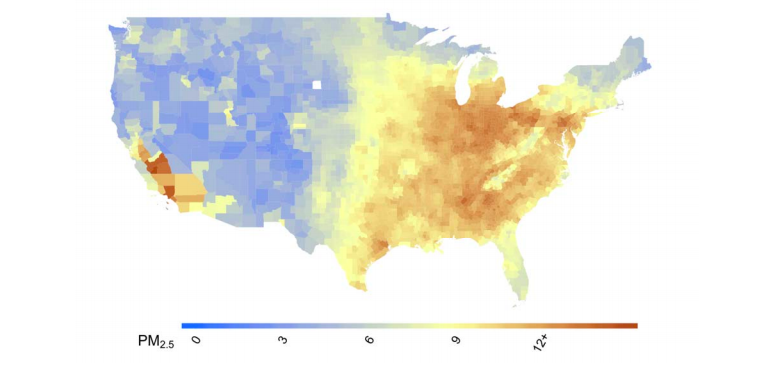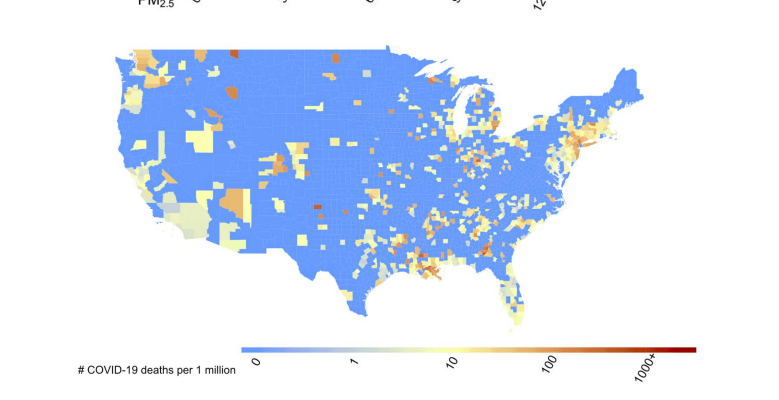There’s something especially insidious about an airborne threat to our health. In performing the most basic act of life — breathing — we let in what could kill us.
And yet, before the virus, we blithely exposed our lungs to another deadly threat — air pollution.
Last week, I drew a contrast between the extraordinarily expensive, economy-stopping measures we’ve taken against the pandemic and our acceptance of the outdoor air pollution that kills 4.2 million people every year.
Obviously, the pollution risks are more predictable and manageable than those of the disease, which is why we’ve tolerated the former. But these aren’t entirely separate threats.
Indeed, there’s mounting evidence that air pollution leaves us more vulnerable to the virus. It would be surprising if this wasn’t the case. Anything that stresses and damages lung tissue will weaken its resistance to infection.
A new study from the Department of Biostatistics at Harvard appears to confirm this intuition. The researchers found a “statistically significant and robust” link between exposure to fine particulate matter (one of the key components of air pollution) and the Covid-19 death rate.
The dirtiest air is often found in densely populated areas — especially in the poorest neighbourhoods, so the usual caveats about correlations and causation apply. However, the researchers did make adjustments for a number of factors such as “population size, hospital beds, number of individuals tested, weather and socioeconomic and behavioural variables including, but not limited to obesity and smoking” — and still reached the following conclusion:


Of course, it’s just one study from one country. But by the time this crisis is over we will have a mountain of data to analyse from across the world. If there’s a link between air pollution and Covid mortality, there’s a good chance of establishing it beyond reasonable doubt.
We’ll then be faced with two vital decisions: Firstly, whether we continue to tolerate this assault on our lungs; and secondly whether we make the polluters pay.










Join the discussion
Join like minded readers that support our journalism by becoming a paid subscriber
To join the discussion in the comments, become a paid subscriber.
Join like minded readers that support our journalism, read unlimited articles and enjoy other subscriber-only benefits.
Subscribe